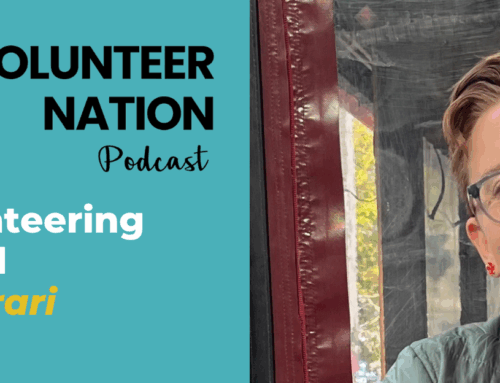 Your Guide to Volunteer Opportunities for Professional Development
Your Guide to Volunteer Opportunities for Professional Development
As our economy evolves, I hear frustration expressed that volunteers simply aren’t available anymore. Two reasons are often cited for the current “drought” — 1) Older volunteers are delaying retirement, and 2) Unemployed volunteers are returning back to work. But, I wonder if this is the case.
Aside from anecdotal info and the national Volunteering in America study (which actually shows a small uptick on national volunteer rates), I’ve been unable to find any recent data that provide evidence to support these claims. So, it’s hard to state conclusively that we’re experiencing significant shifts in volunteer involvement due to workplace fluctuations.
Are volunteer opportunities for professional development beneficial?
As a person who both volunteers and works a full-time job, I’d argue that the two activities actually compliment each other. Above and beyond its value as an altruistic feel-good endeavor, volunteering can help build and support career development for people entering the workplace, seeking promotion, and changing careers later in life (provided opportunities are offered that fit the volunteer’s work/life schedule).
If you’re still not convinced that volunteering might support workplace success, consider these tidbits —
- In a recent Harvard Business Review Daily Management Tip, the publishers recommend that readers “Try Out a Career by Volunteering,” which they suggest allows job seekers to “network with people, build new skills, and enhance their resume.”
- Last year, LinkedIn added a Volunteer Experience & Causes section to its Profile page functionality. The Realized Worth blog claimed this change would “revolutionize the way we volunteer” by making volunteering “a normal and expected element of a well-rounded resume.”
- In 2011, the New York Times covered a story about how volunteering gains stature on a resume.
- Recent research, such as the Deloitte Volunteer IMPACT study, has pointed out that company-sponsored volunteer programs can actually increase employee job satisfaction and engagement.
Clearly, the business world has discovered the value of volunteering to their own operations, at least at some companies.
So, how can volunteer programs take advantage of the attention and, at the same time, support the professional success of their volunteers? I would argue that the answer lies in integrating professional development opportunities into our volunteer reward and recognition strategies.
This practice will not only support volunteers, it will also help us recruit and retain qualified volunteer talent. Helping our volunteers grow makes us more attractive to prospective recruits and more valuable to our existing volunteer corps. It’s a win-win for everyone.
Six Ways to Offer Professional Development Through Your Volunteer Program
So, what are simple, low-cost ways to incorporate career development into our volunteer program perks? Here are a few that might work for you:
- Match Volunteers with the Right Learning and Service Opportunities — When you interview prospective volunteers, ask them about their current and future career hopes and dreams. Then, find flexible ways to help them develop their skills in formal and informal ways through specific volunteer positions. Match their needs with your opportunities.
- Offer a Variety of In-service Trainings — You don’t have to develop and present these all by yourself. Survey volunteers about what they’d like to learn more about. Then, ask internal staff, external partners, and volunteers themselves if they have the expertise to share. You’ll be pleasantly surprised at the talents people have to offer.
- Write Recommendations for Your Volunteers — If you know a volunteer is seeking or experiencing a work transition, offer to write a letter of reference or post a recommendation on LinkedIn (also, remind them that they are free to list you as an organization they have supported). Employers love to see well-rounded applicants who are devoted to their communities.
- Partner with Employee Volunteer Programs — Develop a leadership development program, in partnership with a local company, to train and place volunteers in positions where they spearhead challenging special projects at your organization while growing their skills to lead.
- Help Volunteers Earn College Credit for their Service — Help students, old and young, get college credits, either through traditional internship (or work-study) programs with local educational institutions or with experiential learning programs, like CAEL, that arrange college credit for life experience.
- Offer Continuing Education Credits (CEUs) — If you offer intensive technical training to your volunteers, there’s no reason they shouldn’t get professional credit for it. It takes some work to be able to offer CEUs, and you may need to form alliances with staff or community partners with specific credentials (i.e., MSW) to make it work, but if these are important to your volunteers, then it may make sense to check it out.
So, what do you think — Are work and volunteering mutually exclusive?







Leave A Comment